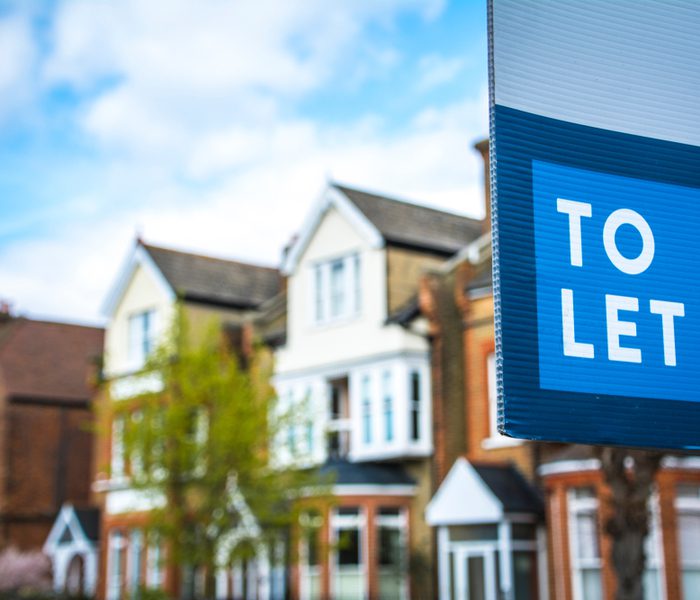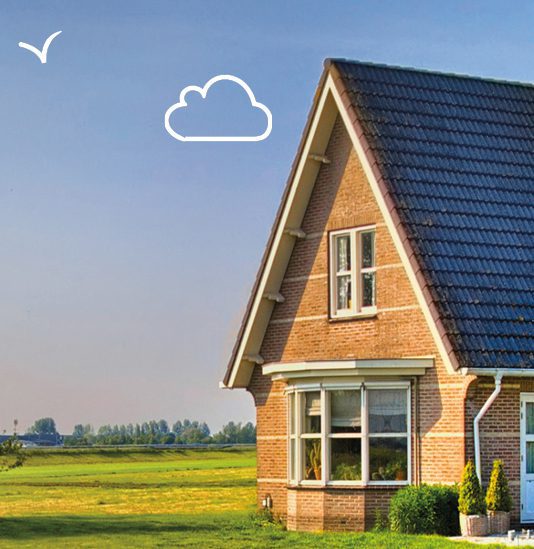With the demand for rentals so strong in the UK, renting out a property can be an excellent investment, a valuable source of income or simply a necessary step depending on your personal circumstances.
But whatever your reason for letting, it’s important you understand the responsibilities and costs that come with being a landlord before you get started. Here, we’ll run you through everything you need to know when you rent out a house for the first time.
Will I definitely be a landlord?
As soon as you rent out a space of any kind, whether it’s a whole house or just a room, you legally become a landlord and you’ll have certain responsibilities and legal obligations that you must meet. These will vary depending on the type of landlord you are.
Resident landlords
If you’re going to let out a room to your lodger while still living in your house, then you’ll be a resident landlord. You’ll need to keep your property in good repair, and will have more freedom to set agreed rent and give notice to your tenants. There are also some financial benefits to being a resident landlord, so make sure you do your research to make the most of these.
First time landlords
If your first rental property is a whole house, you’ll have more obligations, which we’ll run through here.
Firstly, consider your mortgage. If you’re planning on investing in a buy-to-let, just remember that you’ll need a dedicated buy-to-let mortgage which are assessed differently.
If you already have a mortgage but you plan to move out and let the property, or if you want to buy a house to live in for a while before moving out in future, then you’ll need to discuss this with your mortgage lender. They may have to grant ‘consent to let’ which could come with a slight cost – and you’ll probably need to live in your home for at least six months beforehand.
What are my legal obligations as a landlord?
As a landlord, you’re required by law both to keep your tenants safe and protect their deposit. Let’s start with health and safety.
Providing a safe home for your tenants
To keep your tenants as safe as possible in your property, you must comply with fire, gas and electrical regulations, as well as furniture regulations, while maintaining the property to a good standard.
You will need to get an Energy Performance Certificate (EPC) to demonstrate the energy efficiency of your home, required by law for a property rental.
Proof of regular safety checks
To comply with health and safety rules, you’ll also need to carry out regular checks and keep records of these in case you need to show them as evidence for your tenants or for insurance purposes.
You will also need to:
- Keep any gas or electrical equipment in good working order
- Provide a gas safety certificate and electrical safety certificate
- Ensure the boiler is annually serviced and signed off
- Provide smoke alarms and carbon monoxide detectors and make sure they are fitted and maintained.
Don’t forget that if your tenants were sourced via the local council, they have the right to ask the council to inspect your property – who can also choose to carry out an inspection if there’s a chance your property could be hazardous. This is called a Housing Health and Safety Rating System (HHSRS) and you will need to comply with all of the above points.
Protecting your tenant’s deposit
Most landlords will ask for tenancy deposits as a way to protect against any damage you may have to rectify when your tenant moves out. This money is usually around four to six weeks rent and must be held in escrow to avoid disputes, which means if there’s any issue at the end of the tenancy, both you and your tenant have a robust legal process to help you come to an agreement.
As the landlord, it’s your legal responsibility to place this money into a government approved scheme for Tenancy Deposit Protection (TDP).
Understanding tenant rights
Your tenants will have certain rights and protections in place when they rent from you. So to prepare for your first time as a landlord, it’s a good idea to get to grips with these.
Your tenants have the right to:
- Sign a tenancy agreement with you to manage expectations from both parties
- View your property’s EPC so they can budget for utility bills
- Protection from unfair eviction
- Rent protection from unjust rate rises
- Live in a home that’s safe and well-maintained – if you don’t carry out repairs on health hazards, they can report you to the council or take you to court
- Get their deposit back at the end of the tenancy, as long as they’ve met their responsibilities as a tenant
- Live undisturbed by you, unless you ask to carry out an inspection or repairs
- Claim for rent abatement (a reduction in their rent payments) during long-term or disruptive repairs.
Your right to access your rental property
Your tenants’ rights have a knock-on effect on your own. You must give them at least 24 hours’ notice before requesting an inspection or before entering your rental for repairs. The only exception to this is if there’s an emergency and the repair needs to be carried out straight away.
Getting ready to let
Now you understand your legal responsibilities, your next step is preparing for your tenants. Here are a few things you may want to consider.
Should I use a letting agent?
This will depend on how much time you have and how much it will cost. Letting agents are great if you’re busy or not local as they can manage your rental property and tenancy agreement on your behalf, but they may charge between 8 to 15% of your rental income.
If you do choose to use a letting agent, make sure you look around for competitive deals and check their reviews. A good agent will be able to advise on annual rent on similar rental properties, as well as taking care of viewings, tenancy checks and your property inventory. It’s also a good idea to keep an eye on any tenant interviews too, as you should feel happy with the people who will be living in your home.
What if I don’t use an agent?
Many landlords don’t use letting agents. Simply do lots of research to make sure you are fully prepared with a good idea of the likely time and money you’ll need to manage your property and tenants.
Most importantly, you’ll also need to check the references of prospective tenants and carry out credit checks to make sure they can pay the rent. There are online services to help.
How much rent should I charge?
This will depend on various factors, such as market conditions and the location and facilities your property offers. You should have an idea of who you want to rent to and what this might mean, for example if you want to let to a professional tenant then it might be more suitable to offer an unfurnished property whereas if you’re renting to students, then they may well need furniture.
If you’re unsure, research what other similar properties in your area are charging and ask your letting agent, if you have one.
Set up a tenancy agreement
All rental properties should have a written tenancy agreement in place to make sure you and your tenant are aware of your respective responsibilities regarding your property, such as the length of tenancy and notice period.
Before you sign any tenancy agreement with your prospective tenants, don’t forget to check that they have the right to rent in the UK.
Make a property inventory
A detailed property inventory is crucial. It proves the condition of the property before your tenants moved in and can be invaluable if there’s a dispute or any legal issues over damage or rent. This is particularly true if you’re renting out a fully furnished home, so always make an accurate record log, including photographs as evidence.
Get the right landlord insurance
Lastly, make sure all the hard work you’ve done to let out your property is protected. Don’t make the mistake of thinking your home insurance will cover your rental, as most policies won’t provide enough protection. That’s why you’ll need dedicated landlord cover.
This is designed specifically for rental homes and you can get a range of covers, from rent guarantee insurance to liability cover and legal expenses, to contents cover if your property comes with furniture.
Technically, landlord insurance isn’t a legal requirement, but not protecting your let could be risky – especially if you’re relying on it for income and your tenants fall into arrears, or if anyone has an accident in your property.
Ask us if you need help
At Protect My Let, we’ve been finding tailored cover for all sorts of rental properties for nearly 20 years, so if you’ve got any questions at all about what insurance you need, just give us a call on 01206 655899.

